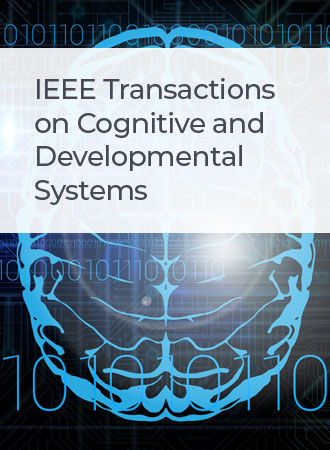基于核函数的自主脑控制学习框架
IF 4.9
3区 计算机科学
Q1 COMPUTER SCIENCE, ARTIFICIAL INTELLIGENCE
IEEE Transactions on Cognitive and Developmental Systems
Pub Date : 2024-10-24
DOI:10.1109/TCDS.2024.3485078
引用次数: 0
摘要
基于强化学习(RL)的脑机接口(bmi)有望恢复瘫痪患者的运动功能。这些接口解释神经活动,通过试错来控制外部设备。在脑控制(BC)任务中,受试者通过想象自己的肢体运动来控制设备在空间中不断移动,在到达目标之前,受试者可以在任何位置改变方向。这种多步BC任务在神经状态和动作序列上都跨越了很大的空间。然而,传统的RL解码器在有效的勘探和延迟奖励的有限指导方面面临挑战。在本文中,我们提出了一个基于核的多步骤BC任务的行动者-评论家学习框架。我们的框架整合了来自内侧前额叶皮层(mPFC)活动的连续轨迹控制(actor)和内部连续状态值估计(critic)。我们使用来自两只大鼠的数据来评估我们的算法在BC三杠杆识别任务中的性能,并将其与具有内部二进制奖励和延迟外部奖励的内核RL解码器进行比较。实验结果表明,该方法具有更快的收敛速度、更短的目标捕获时间和更短的目标距离。这些发现突出了我们的算法在多步骤BC任务中的临床应用潜力。本文章由计算机程序翻译,如有差异,请以英文原文为准。
Kernel-Based Actor–Critic Learning Framework for Autonomous Brain Control on Trajectory
Reinforcement learning (RL)-based brain–machine interfaces (BMIs) hold promise for restoring motor functions in paralyzed individuals. These interfaces interpret neural activity to control external devices through trial-and-error. In brain control (BC) tasks, subjects control the device continuously moving in space by imagining their own limb movement, in which the subject can change direction at any position before reaching the target. Such multistep BC tasks span a large space both in neural state and over a sequence of movements. However, conventional RL decoders face challenges in efficient exploration and limited guidance from delayed rewards. In this article, we propose a kernel-based actor–critic learning framework for multistep BC tasks. Our framework integrates continuous trajectory control (actor) and internal continuous state value estimation (critic) from medial prefrontal cortex (mPFC) activity. We evaluate our algorithm's performance in a BC three-lever discrimination task using data from two rats, comparing it to a kernel RL decoder with internal binary rewards and delayed external rewards. Experimental results show that our approach achieves faster convergence, shorter target-acquisition time, and shorter distances to targets. These findings highlight the potential of our algorithm for clinical applications in multistep BC tasks.
求助全文
通过发布文献求助,成功后即可免费获取论文全文。
去求助
来源期刊

IEEE Transactions on Cognitive and Developmental Systems
Computer Science-Software
CiteScore
7.20
自引率
10.00%
发文量
170
期刊介绍:
The IEEE Transactions on Cognitive and Developmental Systems (TCDS) focuses on advances in the study of development and cognition in natural (humans, animals) and artificial (robots, agents) systems. It welcomes contributions from multiple related disciplines including cognitive systems, cognitive robotics, developmental and epigenetic robotics, autonomous and evolutionary robotics, social structures, multi-agent and artificial life systems, computational neuroscience, and developmental psychology. Articles on theoretical, computational, application-oriented, and experimental studies as well as reviews in these areas are considered.
 求助内容:
求助内容: 应助结果提醒方式:
应助结果提醒方式:


